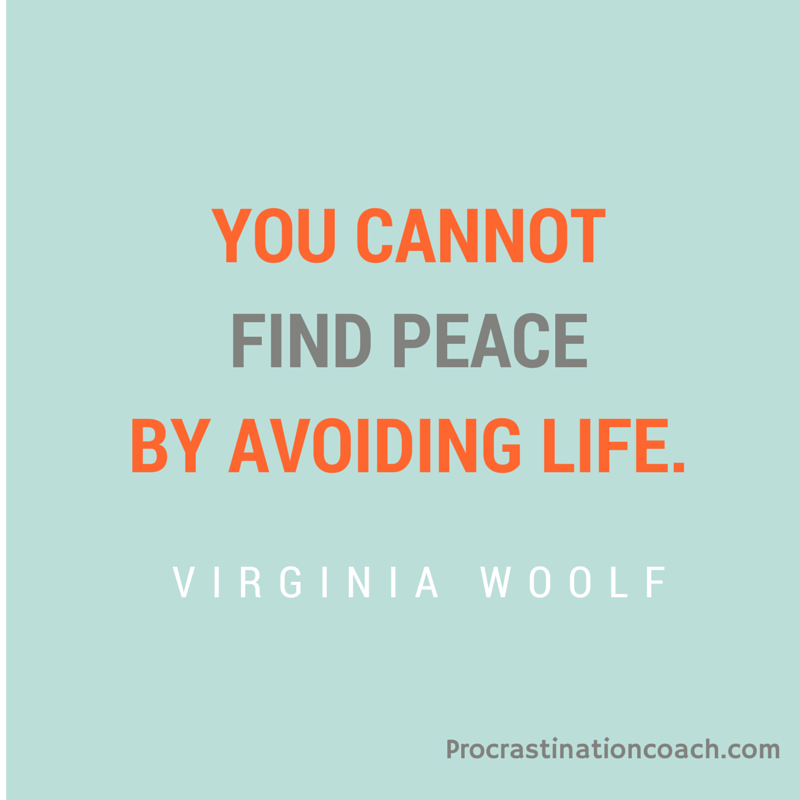 In my work as a psychologist, I listen to patients and the fears they harbor. Since I tend to work with Procrastinators, the fears I hear about most frequently go like this:
In my work as a psychologist, I listen to patients and the fears they harbor. Since I tend to work with Procrastinators, the fears I hear about most frequently go like this:
- fear of making mistakes: we worry about doing something the wrong way
- fear of being awkward: we worry someone else will see that we are not exactly “normal”
- fear of disappointment: we worry if we move forward with our plans, they will not pan out as we'd like
- fear of letting someone down: we worry even our best performance will be unsatisfactory to those we are trying to please or to impress
- fear of rejection: we worry we will not be accepted for who we are
- fear of being called out: we worry our worst flaws will finally be seen by someone
The list above shows how vulnerable we each can feel, even over mundane matters. It also shows how important being accepted and being treated kindly matter to us.
The great, unfortunate, irony for Procrastinators is we end up treating ourselves more harshly and viciously than anyone else would. We do this in the name of self-protection. We try to protect ourselves from re-experiencing hurts we went through or witnessed when we were younger. We do this by being vigilant and perfectionistic. We do this by warning ourselves to be careful where we step. When we use a self-protection mindset as a method of coping with life, our lives tend to get clouded with a general feeling of worry. When we do this over many years, we end up forgetting our original fears and wind up developing a generalized fear of taking any action.
The benefit of naming your fears, to yourself or to someone else, is a return to the present moment and to life outside the cloud of worry. When I help patients to name their fears, I also help them to understand their immense capacity to take care of themselves and to handle whatever may happen once they take action. Most patients tend to find these ideas much more comforting and realistic than the fears they had been carrying around.
Perhaps the real benefit of facing your long-held fears is to replace that feeling of worry that resides in your chest with a feeling of calm self-acceptance. When we develop and nurture that feeling, it becomes much easier to sidestep worry. It becomes much easier to be ourselves, no matter what action is required of us. And that feeling of calm self-acceptance is possible for each of us.
Do you see a bit of yourself in the list of fears? Can you challenge yourself today to test and break down your specific fear? Please feel free to share your thoughts on this humongous topic by posting a comment here.

